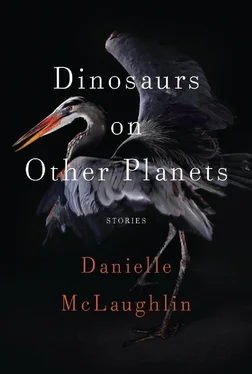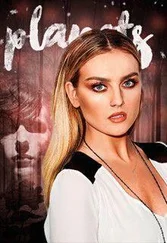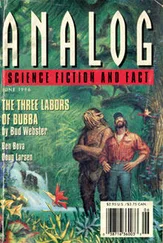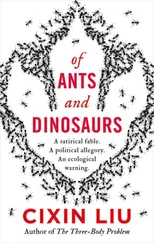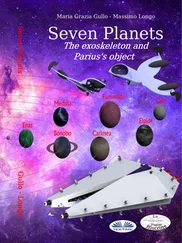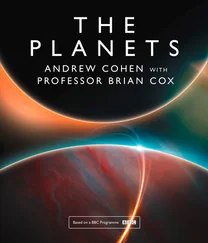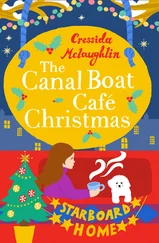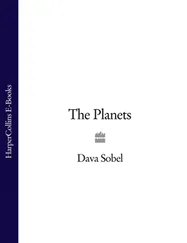The boy shrugged, took another bite of biscuit.
“Colman,” Kate said sharply, “would you see if there’s some lemonade in the fridge?”
He looked at her the way the cat sometimes looked at her when she caught it sleeping on the sofa, a look at once both guilty and defiant, but he got up without saying anything and fetched the lemonade.
They heard footsteps on the stairs, and laughter, and Emer came into the kitchen with Pavel in tow. Opening the fridge, she took out a liter of milk and drank straight from the carton. She wiped her mouth with her hand and put the milk back. Pavel nodded to Kate and Colman — an easy, relaxed nod — but he didn’t join them at the table. Instead, he went over to a window that looked out on the garden and the scrubland and forest beyond. “They’re like gods, aren’t they?” he said, pointing to the three wind turbines rotating slowly on the mountain. “I feel I should take them a few dead chickens — kill a goat or something.”
His voice reminded Kate of a man who used to present a history program on the BBC, but with the barest hint of something else, something melodic, a slight lengthening of vowels. “Don’t mention the war,” she said. “Those things have caused no end of trouble.”
“Perhaps not enough goats?” he said.
She smiled and was about to offer him tea, but Emer linked his arm. “We’re going to the pub,” she said. “Just for the one, we won’t be long.” She blew Oisín a kiss. “Be good for your granny and granddad,” she said as they went out the door.
The boy sat quietly at the table, working his way through the biscuits. Kate remembered the board game she had found that morning and had left on the chair in the spare room. She thought about fetching it, but Pavel might notice it gone — would know she had been in the room in his absence. Oisín reached for another biscuit. “We could see if there are cartoons on television,” she said. “Would you like that?”
Colman glared at her as if she had suggested sending the child down a mine. “Television will rot his brain,” he said. He leaned in to the boy. “Tell you what,” he said. “Why don’t you and I go hunt those foxes?”
Immediately, the boy was climbing down off his chair, the biscuits and lemonade forgotten. “What will we do with the foxes when we catch them?” he said.
“We’ll worry about that when it happens,” Colman said. He turned to Kate. “You didn’t want to come, did you?”
“No,” she said. “It’s okay. I’d better make a start on dinner.” She walked with them to the back porch, watched them go down the garden and scale the fence at the end. The boy’s hair snagged as he squeezed beneath the barbed wire, and she knew if she went to the fence now she would find silky white strands left behind, like the locks of wool left by lambs. Dropping into the field on the other side, they made their way across the scrub, through grass and briars and wild saplings, Colman in front, the boy behind, almost running to keep up. The grass was in the first rush of spring growth. Come summer, it would be higher, higher than the boy’s head and blonder, as it turned, unharvested, to hay. They reached the pile of timber that used to be the hut, and Colman stopped, bent to take something from the ground. He held it in the air with one hand, gesticulating with the other, then gave it to the boy. Goodness knows what he was showing the child, she thought, what rubbish they were picking up. Whatever the thing was, she saw the boy discard it in the grass, and then they went onward, getting smaller and smaller, until they disappeared into the forest. She moved about the kitchen, preparing dinner, watering the geraniums in their pots on the window. She rinsed the plastic tumbler at the sink and watched the sky change above the Dennehys’ sheds, the familiar shifts of light that marked the passing of the day.
—
AN HOUR LATER HER husband and grandson returned, clattering into the kitchen. Oisín’s shoes and the ends of his trousers were covered in mud. He was carrying something, cradling it to his chest, and when she went to help him off with his shoes, she saw it was an animal skull. Colman went out to the utility room and rummaged around in the cupboards, knocking over pans and brushes, banging doors. “What are you looking for?” she said, but he disappeared outside to the yard. The boy remained in the kitchen, stroking the skull as if it were a kitten. It was yellowy white and long nosed with a broad forehead.
Colman returned with a plastic bucket and a five-gallon drum of bleach. He took the skull from the boy and placed it in the bucket, poured the bleach on top until it reached the rim. The boy looked on in awe. “Now,” Colman said, “that’ll clean up nicely. Leave it a couple of days and you’ll see how white it is.”
“Look,” the boy said, grabbing Kate’s hand and dragging her over. “We found a dinosaur skull.”
“A sheep, more likely,” his grandfather said. “A sheep that got caught in wire. The dinosaurs were killed by a meteorite millions of years ago.”
Kate peered into the bucket. Little black things, flies perhaps, had already detached themselves from the skull and were floating loose. There was green around the eye sockets, and veins of mud grained deep in the bone.
“What’s a meteorite?” the boy said.
The front door opened and they heard Emer and Pavel coming down the hall. “The child doesn’t know what a meteorite is,” Colman said, when they entered the kitchen.
Emer rolled her eyes at her mother. She sniffed, and wrinkled her nose. “It smells like a hospital in here,” she said.
Pavel dropped to his haunches beside the bucket. “What’s this?” he said.
“It’s a dinosaur skull,” Oisín said.
“So it is,” Pavel said.
Kate waited for her husband to contradict him, but Colman had settled into an armchair in the corner, holding a newspaper, chest height, in front of him. She looked down at the top of Pavel’s head, noticed how his hair had the faintest suggestion of a curl, how a tuft went its own way at the back. The scent of his shampoo was sharp and sweet and spiced, like an orange pomander. She looked away, out to the garden, and saw that the evening was fading. “I’m going to get some herbs,” she said, “before it’s too dark,” and, taking scissors and a basket, she went outside. She cut parsley first, then thyme, brushing away small insects that crept over her hands, scolding the cat when it thrust its head in the basket. Inside the house, someone switched on the lights. From the dusk of the garden, she watched figures move about the kitchen, a series of family tableaux framed by floral-curtained windows: now Colman and Oisín, now Oisín and Emer, sometimes Emer and Pavel. Every so often, she heard a sudden burst of laughter.
Back inside, she found Colman, Oisín, and Pavel gathered around a box on the table, an old cardboard Tayto box from beneath the stairs. She put the herbs in a colander by the sink and went over to the table. Overhead, water rattled through the house’s antiquated pipes: the sound of Emer running a bath. From the box, Colman took dusty school reports, a metal truck with its front wheels missing, a tin of toy soldiers. “Aha!” he said. “I knew we kept it.” He lifted out a long cylinder of paper and tapped it playfully against the top of Oisín’s head. “I’m going to show you what a meteorite looks like,” he said.
She watched as Colman unfurled the paper and laid it flat on the table. It curled back into itself, and he reached for a couple of books from a nearby shelf, positioning them at the top and bottom to hold it in place. It was a poster, four feet long and two feet wide. “This here,” Colman said, “is the asteroid belt.” He traced a circular pattern in the middle of the poster, and when he took away his hand, his fingertips were gray with dust.
Читать дальше
